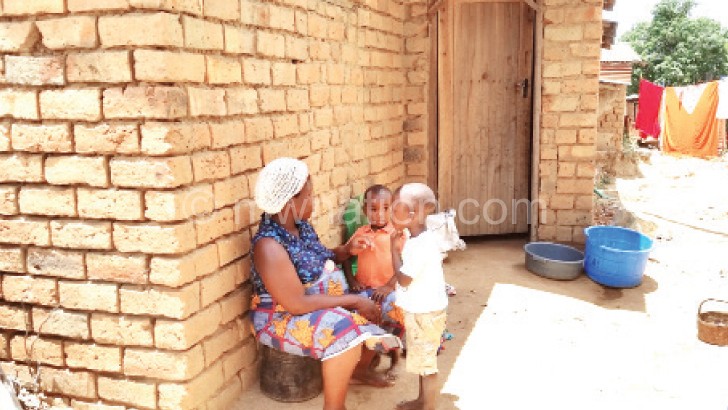No ‘Christmas’ for urban poor
It is Christmas Day and parties are all over, but for Ndirande-based Charity Maunjiri, 35, the sun will rise and set like on any other day; she expects nothing new on the day’s menu because she has no means of making the day any different from yesterday.
“It is enough to be alive and I am happy for that. As I celebrate the birth of Jesus, I will be thanking God for keeping me alive. I wish I had made the day special by organising a party, but I cannot because I do not have the means,” says Maunjiri.

Her home is a mirror of urban poverty characterised by hand-to-mouth survival, while her biggest challenge is knowing how she will get her next meal. During the interview on Wednesday, she was even reluctant to talk about the festive season. She actually said Christmas and New Year days cause her a great deal of pain as she recalls how life was when she was a child, with her parents around.
“In the past, a week before Christmas, hype was high and the focus was on having new clothes and money with which to spoil ourselves on that day. It is a different story today. I even feel sorry for my children because I cannot make them happy as my parents did to me during this time,” she said.
Maunjiri is married, but her husband left for South Africa five years ago, leaving her with the burden of caring for the children. Worse still, she also has under her care two grandchildren, whose sad story is that the husband barely supports the family.
“Life was manageable when I used to sell second-hand clothes [kaunjika], but the business collapsed. I used the little I had saved in caring for my sick mother, who eventually passed on. I spent all the money that I had and I do not think I will restart the business anytime soon, unless someone bails me out,” she said.
Maunjiri detailed how she will spend this Christmas Day, saying she will start it with a prayer as usual, followed by her daily domestic chores. Later, she will go to church at Ndirande CCAP Church with the family. She disclosed that she has not bought new clothes for her children, but will make sure that they put on clean clothes.
She said there is nothing new on the kitchen menu, although she wished they ate rice and chicken, which will be one of the most popular dishes in the homes today.
Her children understand the poverty in the home and the school dropout mother attributes this to her culture of telling them the truth about the status of their family.
“If you lie to your children, they will cause problems. My children know that I am poor and they do not bother me. Even when they know that there is no food, they understand our situation. We know children want good food and better clothes on Christmas Day, but none of my children has asked me for new clothes, not that they do not want them, but they know I cannot afford to meet their wishes,” she said.
Maunjiri’s story is, but just a mirror of the situation on the ground. Many households in urban areas such as Blantyre, Lilongwe, Zomba and Mzuzu can hardly afford a party this festive season due to poverty.
Ruth Phiri, another Ndirande Township resident is married with four children. Her husband is an entrepreneur, but said she cannot remember when they last had a Christmas party at their house. She said they have the money, but not disposable cash to for parties.
“Christmas and New Year celebrations come once a year, but expenditures we make create a burden that can last a whole year. It is hard to make money and it is good to spend it well. We have children in school and they will need school fees come January,” explained Phiri.
Due to increasing cost of living, Phiri said she planned nothing for Christmas, but because one of her sister’s children will be baptised today, they have organised a simple get-together to celebrate the child’s spiritual growth.
While some people have budgeted to spend at will this festive season, with others making merry today, our investigations have established that the looming hunger and the prevailing difficult economic situation in the country has created a passive mood towards expenditure this festive season both in the cities and in the countryside.
This, however, has not surprised economist Ben Kalua who said was in Blantyre this week and observed a subdued mood on shopping among people.
“Unlike in the past, when you would see people in shopping malls pushing trolleys with loads of goods, most people queuing on the tills were carrying one or two items. This tells you that something is wrong on individual income.
“There is a subdued mood in expenses and there are many factors. The major ones are the reforms being implemented, the fall of the kwacha and the increase in costs of education and other utilities. This means most people have no disposable income,” he said.
Kalua added that this is not a strange situation. He said the world appreciated the same in 2007/08 when there was a global financial crisis. He said people adjusted their expenditure and prioritised important items. n





